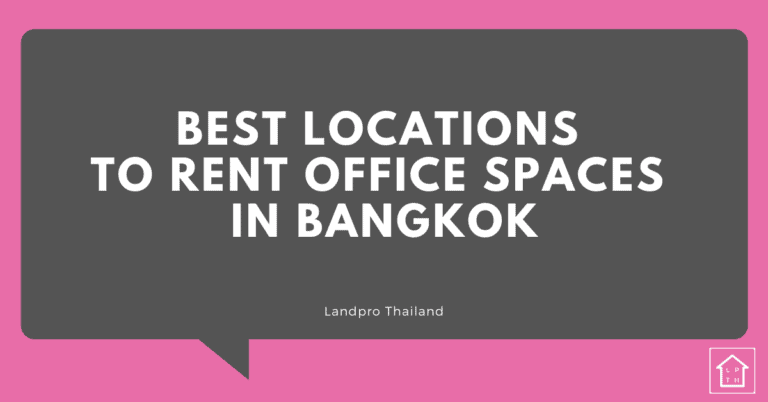Yes, foreigners can buy property such as condominium units and apartment units in Thailand, but not a landed property.
Following are the legal restrictions you should be aware of if you are interested in investing in a Thai property.
Condominium and Apartment units
As a foreigner, you can legally buy and own freehold condominium and apartment units.
There are 2 requirements for foreigners to meet in order to be granted the freehold land title.
1. Foreign Quota
According to the Thai law, not more than 49% of a condominium or apartment building can be owned by foreigners. The remaining 51% must be owned by Thai citizens. The ownership percentage goes by unit space and not the number of units. This is called ‘foreign quota’.
You will need to check with the developer or juristic management office about the property’s ‘foreign quota’ before purchasing a unit. If the foreign quota of that project is sold out, the foreigners can only purchase a unit on a leasehold basis.
2. Funds to buy the property must be transferred from overseas
The money used to purchase the units must be transferred to a Thai bank from overseas. (This is either to bring foreign currencies into the country or to prevent money laundering cases). Even if you are currently working in Thailand and your income is from Thai companies, you will still need to transfer money out and then transfer back again to get the proof from Thai bank. Upon receipt of the transfer of funds from overseas, the Thai banks will issue the Foreign Exchange Transaction Form (FETE). The land office will ask foreigners to present this form in order to be able to transfer the unit ownership.
Landed property (Land, Townhome, Townhouse, House, Villa, Hotel, Building, etc.)
Theoretically speaking, foreigners cannot buy landed property, but practically speaking, there are few possible ways to own landed property in Thailand.
1. Leasehold
Acquire landed property on a leasehold basis is 100% legal. The name of the leaseholder is shown on the land title deed when registering the property at the land office. The maximum leasing period is 30 years, with two subsequent renewals or contract extensions (total of 90 years).
When agreeing on the contract, make sure the lease contract states that the leaseholder has the rights to resell or rent out the property within the lease period.
By buying a leasehold property, you may not be able to fully own the property. However, it will give you the rights to use, resell and rent out the property during the agreed contractual period. This prevents a lot less hassle, legal process and paperwork.
Furthermore, the main benefit of acquiring a leasehold property is that the price will be significantly cheaper than a freehold property. In many instances, this might help you secure better property for the same amount of budget. Therefore, leasehold is a very attractive option for retirees who are looking for a short term ownership.
2. Setting up a Thai company
A Thai company can be set up for property acquisition purpose under the condition that the foreign investors can hold up to 49% of the company’s shares and the remaining 51% of the shares must be held by Thais. Despite owning the minority of the shares, the company is usually structured in a way that foreigners would have full control and can indirectly own the landed property legally. Most of the time, it is done by using nominee Thai shareholders or so called a ‘proxy’.
However, this is not a ‘black and white’ practice in Thai legal system and the Thai government does not encourage this practice but it has been introduced widely to foreign buyers who wish to buy landed property in Thailand for the purpose of long term stay, retirement, or investment by the legal consulting companies.
One of the benefits of using this method is that you can also set up your own business and get document processing for work permit and visa for long term stay in case you do not have one yet. This is a common way for foreigners to do business and own property in Thailand.
3. Through a nominee: Thai spouse or partner
Many foreigners consider buying landed property through Thai citizens. A spouse or trusted partner are usually the first options. By doing so, your name will not be on land title which makes it impossible for you to be a legal owner of that property. Some people back this up by issuing the loan agreement or mortgage to the land buyer.
This comes with the huge drawbacks and somehow not 100% legal. This is a common method for foreigners who have Thai spouse and children. However, please note that if you purchase the property through marriage, the property will be legally owned by your Thai spouse in case of divorce.
Conclusion
Foreigners can legally buy condominium and apartment units freehold. As long as the foreign quota of that building is not more than 49% and the funds to buy the property is transferred from abroad. While the landed property cannot be legally owned by foreign investors, it can only be acquired through Thai entities or leasehold contracts.




